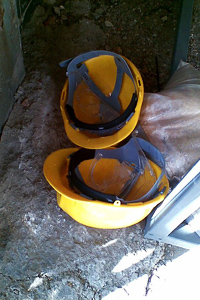
 I caught the QS World MBA Tour last night in Berlin. There were a number of business school reps there, so I thought it might be a good opportunity to ask them something that’s on the minds of many in the FIND MBA community these days – applications and qualifications.
I caught the QS World MBA Tour last night in Berlin. There were a number of business school reps there, so I thought it might be a good opportunity to ask them something that’s on the minds of many in the FIND MBA community these days – applications and qualifications.
One of the questions that keeps coming up in our discussion board each year is “Why do I need work experience in order to get into business school?”
So, I asked around. Here’s what they said:
Marc Endrigat, Pepperdine University (Graziadio)
“If you don’t have any work experience, you’re not going to get as much out of the program. Until a couple of years ago, we used to not require work experience, but then the students and the professors said that the people who are in the program without work experience cannot contribute in the classroom, and they don’t get as much out of the classroom. If they don’t have any experience that they can relate the theories to, they’re not going to learn.”
“The work experience that someone brings into the program is usually going to be the biggest asset on their application…I would say that the quality and amount of work experience can supercede a lower GMAT score.”
Melissa Jones, INSEAD
“At INSEAD, you need a minimum of 2 years of work experience to get admitted to the program. The average of our students is 6 years. We just feel that bringing that experience to the classroom can bring so much more value than coming straight out of an undergrad. When you’re in the classroom, 50 percent of the learning comes from the professor and the other half comes from all your peers. So, if you have that experience, that’s when the learning really takes place.”
Spencer Altman, Alumni, HEC Paris
“It’s actually for everyone in the program, including the person who is applying … With all of the subjects that you cover in an MBA, it’s important – with 4, 5, 6, or in some cases 8 years (of work experience) – to be an expert in at least one of those subjects as some sort of reference point to apply to the rest. So, if you’re an accountant, to at least be able to say, okay, I know this.”
Hanne Jeppesen, Open University
“This is the leadership level, so you need to the actual experience to apply what we are teaching. If you go into a full-time MBA straight after university, you have no experience to apply it to, and you’ll come out at the end of it knowing all the theory about how to be a good manager and how to be a leader, but have no grip on about how to apply it to real life. When you learn theory, it’s important to have some idea in terms of how it applies to a real-life situation. You’ll be an expert on the theory of management, but you won’t be a manager.”
Photo: Annie Mole / Creative Commons